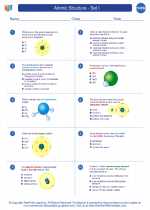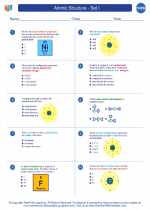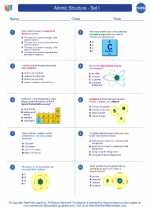Weight in Chemistry
In chemistry, weight refers to the force exerted on an object due to gravity. It is a measure of the mass of an object and the gravitational force acting on it. The weight of an object is often measured in units such as grams, kilograms, pounds, or newtons.
Understanding Weight
The weight of an object can vary depending on the strength of the gravitational force acting on it. On Earth, the weight of an object is influenced by the acceleration due to gravity, which is approximately 9.81 m/s2. This means that the weight of an object on Earth is approximately 9.81 times its mass.
It's important to note that weight is different from mass. While weight is a measure of the force exerted on an object, mass refers to the amount of matter in an object. Mass is typically measured in units such as grams or kilograms and does not change with location, whereas weight does.
Calculating Weight
The weight of an object can be calculated using the formula:
Weight = Mass x Acceleration due to Gravity
Where:
- Weight is the force exerted on the object (measured in newtons or pounds)
- Mass is the amount of matter in the object (measured in kilograms or grams)
- Acceleration due to Gravity is the gravitational acceleration (approximately 9.81 m/s2 on Earth)
Study Guide
When studying weight in chemistry, it's important to understand the following key points:
- The relationship between mass and weight
- Units of measurement for weight (e.g., newtons, pounds)
- How to calculate weight using the formula Weight = Mass x Acceleration due to Gravity
- The effect of gravitational acceleration on weight
- The difference between weight and mass
It can also be helpful to practice solving problems related to calculating weight and understanding the concept of gravitational force. Additionally, understanding the applications of weight in various chemical and physical phenomena can provide a broader perspective on its significance in the field of chemistry.
By mastering the concept of weight, you'll be better equipped to understand the behavior of objects in different gravitational environments and its implications in chemical processes and experiments.
.◂Chemistry Worksheets and Study Guides High School. Atomic Structure - Set I

 Worksheet/Answer key
Worksheet/Answer key
 Worksheet/Answer key
Worksheet/Answer key
